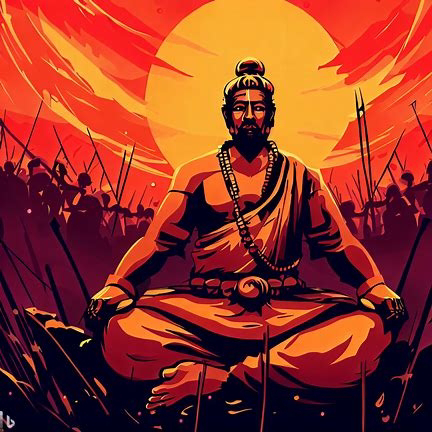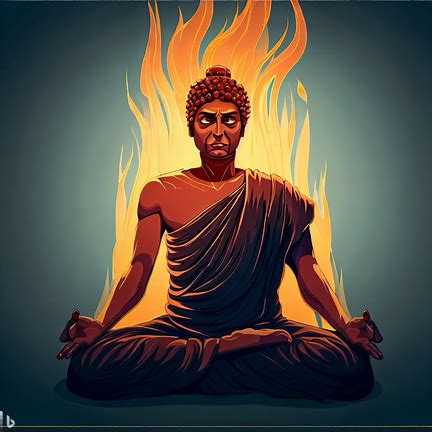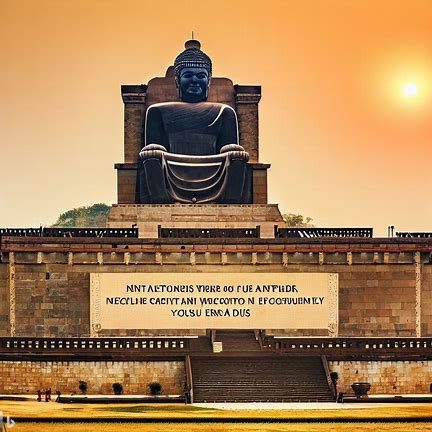Ashoka: The Emperor of Compassion
Once upon a time, in the ancient land of India, there ruled a mighty emperor named Ashoka. Born in 304 BCE, Ashoka was the son of Emperor Bindusara, who belonged to the Maurya dynasty. Ashoka's early life was marked by ambition and a thirst for power. He sought to expand his father's empire and establish his dominance over the Indian subcontinent.
Ashoka was known for his fierce military strategies and battlefield prowess. He led numerous successful campaigns, conquering vast territories and bringing them under his rule. However, despite his military triumphs, Ashoka felt a deep sense of emptiness and dissatisfaction. The violence and bloodshed he witnessed on the battlefield began to haunt his conscience.
In the year 261 BCE, Ashoka's life took a transformative turn. Following a brutal war against the kingdom of Kalinga, he was struck by the devastating consequences of his actions. The immense loss of life and suffering deeply affected him, causing a profound change in his worldview. Ashoka realized that the path of conquest and violence could not lead to lasting peace and happiness.
Filled with remorse, Ashoka renounced violence and embraced the teachings of Buddhism. He sought solace and guidance in the teachings of the Buddha, which emphasized compassion, non-violence, and the welfare of all living beings. Ashoka saw Buddhism as a means to bring about true harmony and enlightenment.
With his newfound belief in peace, Ashoka set out on a mission to spread the principles of Buddhism and promote the welfare of his subjects. He embarked on a series of reforms that aimed to create a just and compassionate society. Ashoka established hospitals, built shelters for the homeless, and constructed wells and rest houses along the trade routes for the benefit of travelers.
One of Ashoka's most significant contributions was his formulation of the Edicts of Ashoka. These edicts were inscribed on stone pillars and walls throughout his empire, conveying his message of tolerance, social justice, and respect for all religions. The edicts promoted ethical conduct, encouraged religious freedom, and emphasized the welfare of both human beings and animals.
Ashoka also sent envoys and missionaries to spread Buddhism beyond the borders of his empire. He established friendly diplomatic relations with neighboring kingdoms and sought to resolve conflicts through peaceful means. Ashoka's commitment to non-violence and peaceful coexistence left a lasting impact on the political landscape of ancient India.
The emperor's efforts to promote Buddhism and create a harmonious society earned him immense respect and admiration. Ashoka's reign became known as the Golden Age of India. His legacy continued to inspire generations to come, as his teachings and values permeated Indian society for centuries.
Ashoka's transformation from a ruthless conqueror to a compassionate emperor serves as a powerful reminder of the potential for personal growth and societal change. His story remains an enduring testament to the power of peace, compassion, and the pursuit of a more enlightened path.












